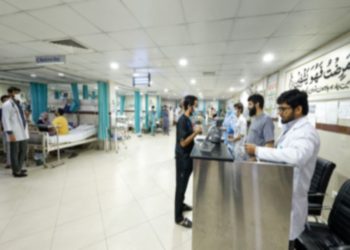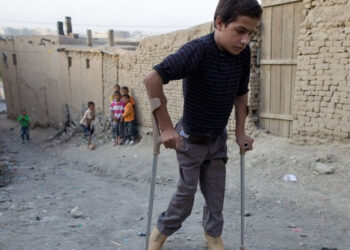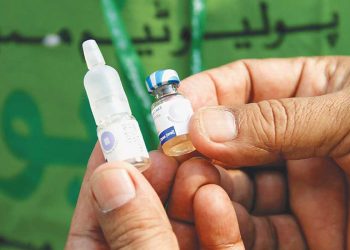Dow University of Health Sciences (DUHS) has successfully completed the lab-scale formulation of Pakistan’s first locally developed human anti-rabies vaccine, taking a giant step toward self-reliance in combating dog bite incidents, which claim numerous lives in Pakistan every year.
Officials from the pharmaceutical industry have confirmed that this is the country’s first human vaccine developed using a biologic molecule sourced domestically—setting a new precedent in Pakistan’s medical and scientific history.
The project was completed with support from the World Bank and implemented by the Higher Education Commission (HEC).
Last year, Dow University had initiated commercial production of the anti-rabies vaccine using imported raw materials from China, under the brand name “Dow Rab.” The university has now developed its own local bio-molecule, which will be used for future vaccine production.
This advancement is expected to significantly reduce Pakistan’s reliance on costly imported vaccines, saving the country billions of rupees.
According to the university’s website, LinkedIn post, and conversations with officials reported by Business Recorder, “This purified, inactivated, and lyophilized vaccine has been developed from a strain of rabies virus isolated locally, marking a critical milestone in the fight against rabies in Pakistan.”
With success achieved at the laboratory level, the project will now move to the preparation of clinical trial batches to seek approval from the Drug Regulatory Authority of Pakistan (DRAP)—another step toward local vaccine production and usage.
At a recent event held at the International Center for Chemical and Biological Sciences (ICCBS) at the University of Karachi, Farooq Mustafa, Director of Quality Operations and Biotech at Macter Pharma, said that Pakistan is entirely dependent on imported vaccines, which are supplied each year with support from GAVI, UNICEF, and WHO, or procured at subsidized rates—amounting to an estimated cost of approximately PKR 26 billion annually.
However, GAVI’s support is set to end by 2031. After that, the country may be required to spend around PKR 100 billion annually on vaccine imports—four times higher than the current federal health ministry budget of PKR 27 billion.






































